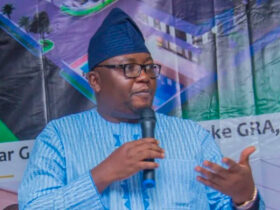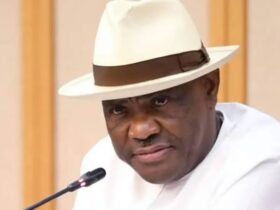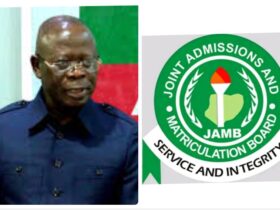In a dramatic turn of events, the Labour Party (LP) faced a tumultuous situation as members of the Nigeria Labour Congress (NLC) launched a protest demanding the resignation of LP’s National Chairman, Julius Abure.
The protest, which unfolded nationwide, culminated in the invasion of LP’s secretariats, resulting in chaos and allegations of theft.

According to LP’s National Chairman, Julius Abure, the protesters, in their bid to press for his resignation, resorted to unlawful actions, including breaking into LP’s offices and causing extensive damage to property valued at millions of naira. Abure further claimed that the protesters stole money designated for staff salaries and other official purposes.
Describing the incident as a “show of shame” and “rascality,” Abure condemned the actions of the NLC under the leadership of Joe Ajaero. He accused the Nigeria Labour Congress of taking the law into their own hands and jeopardizing the progress made by LP in the 2023 general election.
Abure vehemently denied the NLC’s purported ownership of the Labour Party, emphasizing that the party operates independently and is not subject to NLC’s jurisdiction. He criticized the NLC’s interference in LP’s affairs, labeling it an “abuse of office” and a violation of the law.
Addressing allegations of a secret convention, Abure clarified that LP had followed due process, holding a National Executive Committee (NEC) meeting in April 2023, and had begun planning for the convention since then. He accused Ajaero of having “ulterior motives” and vowed not to allow him to hijack the party’s proceedings.
READ ALSO: Police Arrest Three Suspected Cultists in Osun
The LP’s National Publicity Secretary, Obiora Ifoh, echoed Abure’s sentiments, condemning the NLC’s actions and reaffirming LP’s commitment to upholding democratic processes.
Meanwhile, the NLC, through its leadership under Joe Ajaero, has yet to respond to the accusations leveled against them by LP. The escalating conflict between the two organizations poses challenges not only for their internal operations but also for the broader labor movement in Nigeria.









Leave a Reply